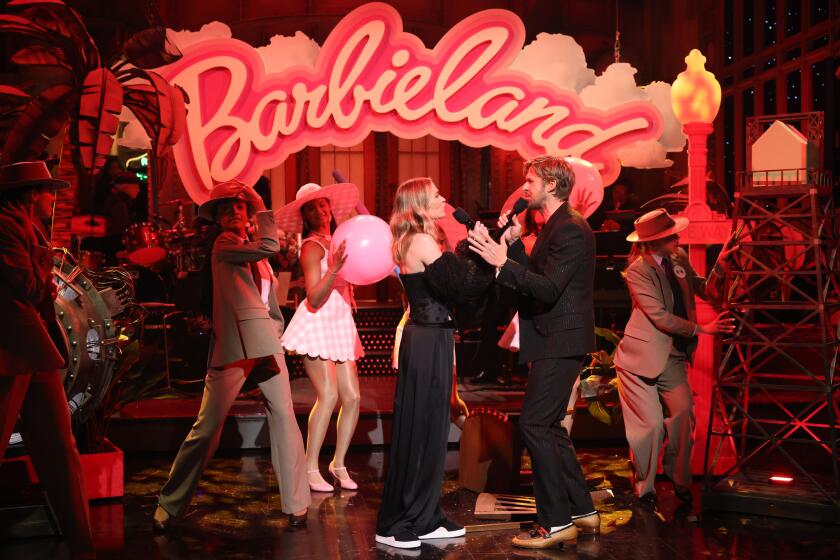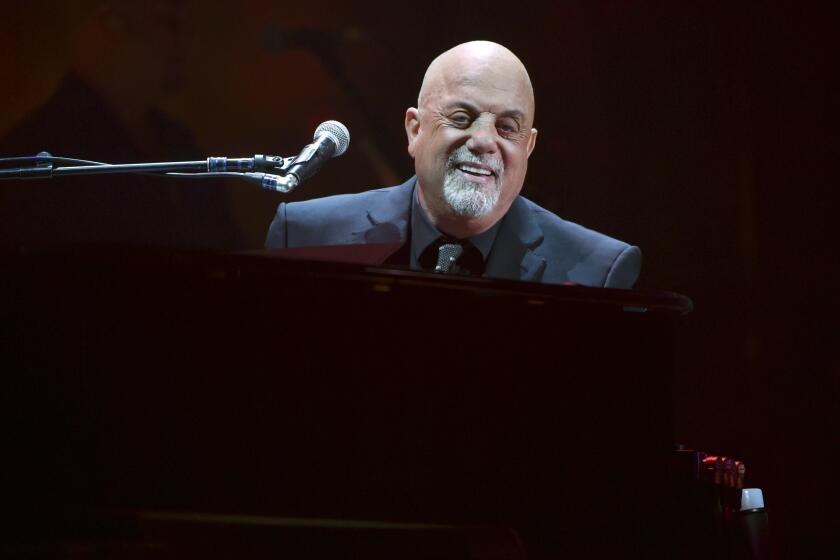Right for the part?
It sometimes seems as though celebrities today are obsessed with trying to move the global agenda. Like Angelina Jolie. Think of how she’s changed her image since her breakup with Billy Bob Thornton. In February, she published an Op-Ed article in the Washington Post about the crisis in Darfur. She’s worked as a goodwill ambassador for the United Nations High Commissioner for Refugees. She was interviewed by Foreign Policy magazine last summer and received a glowing profile in Newsweek, modestly titled “Angelina Jolie Wants to Save the World.” In that story, former Secretary of State Colin Powell describes Jolie as “absolutely serious, absolutely informed. ... She studies the issues.”
Jolie is just one of many star activists. Madonna, Bono, Sean Penn, Steven Spielberg, George Clooney and Sheryl Crow -- all have used their celebrity status to push their favored causes in an effort to affect what governments do and say. But why do they do it, and will it work?
Celebrity involvement in politics and policy is hardly new. Shirley Temple and Jane Fonda, for example, became known as much for their politics as their films. Actors, including Ronald Reagan, Arnold Schwarzenegger and Fred Thompson, have taken the more traditional star route to power: running for political office. The template for the Live Earth concerts earlier this year was the 1985 Live Aid concert, which in turn echoed the 1974 all-star concert for Bangladesh.
But today, the power of soft news has given stars new leverage. Their rising clout has as much to do with how we consume information as it does with the celebrities themselves. Cable television, talk radio and weblogs have radically diversified the news sources available to Americans. The more competitive marketplace for news and entertainment affects how public opinion on foreign policy is formed.
Matthew Baum argued in his book “Soft News Goes to War” that a large share of Americans get their information about world politics from such soft-news shows as “Entertainment Tonight,” “Access Hollywood,” “The View,” “The Daily Show” and “The Tonight Show” -- or from Gawker, TMZ and PerezHilton. These shows and websites reach an audience that is normally unattainable by the New York Times or “Nightline,” according to Baum. Yet hard-news sources cover celebrity politics too. Think of how many times you saw Madonna in Africa on CNN, or Sean Penn in Venezuela. And frankly, if the Washington Post has to choose between an Op-Ed article by Jolie and one by a lesser-known expert on Sudan, which author do you think will be published?
Of course, some celebrities are more effective than others. In the 1990s, Princess Diana embraced a ban on the use of land mines. Her death became a rallying point that led to Britain’s ratification of the 1997 Ottawa Convention to ban the devices. The Bono-championed Jubilee 2000 campaign to assist highly indebted poor countries resulted in “the most successful industrial-country movement aimed at combating world poverty for many years, perhaps in all recorded history,” according to the Center for Global Development, an independent, nonprofit think tank. Bono and Bob Geldof also helped fuel the pledge at the 2005 Gleneagles G-8 summit to double aid to developing countries.
Here’s another success: In a Wall Street Journal article, Mia Farrow, a Darfur activist, took on Spielberg, an artistic advisor to the 2008 Summer Olympics in China, warning him that he would become “the Leni Riefenstahl of the Beijing Games” if he didn’t speak out against China’s steadfast defense of Sudan. The chastised producer later sent a letter to Chinese President Hu Jintao because he felt compelled to “add my voice to those who ask that China change its policy toward Sudan.” Regardless of the reasons, Beijing has begun to pressure Sudan’s government into cooperating with the United Nations on Darfur.
But celebrity activism doesn’t always achieve its ends. Richard Gere, for instance, has devoted decades to the cause of Tibetan independence, to little avail. And although Bono has been invaluable in promoting debt relief, his (Product) Red campaign, which aimed to generate money for the U.N. Global Fund to Fight AIDS, Tuberculosis and Malaria, has been a disappointment.
Even if celebrities are judicious and focused in promoting their causes, there are limits to what they can do. Promoting a policy agenda is one thing; implementing it is another thing entirely. A celebrity who harps on a cause risks generating fatigue with the general public. As Bono recently told CNN: “Look, I’m Bono and I’m sick of Bono. And I fully understand. ... I look forward to a time when I’m not such a pest and a self-righteous rock star.”
A deeper problem celebrities face is that although they’re good at bringing attention to a problem, it does not automatically follow that there will be a groundswell of support for direct action. This is not how politics necessarily works, particularly in the global realm. Any solution to a problem such as global warming or Darfur involves not just goodwill but a willingness to incur significant costs. As people become more aware of the policy problem, it is far from guaranteed that a consensus will emerge about the best way to solve it.
With celebrity power also comes the potential for blowback. A September CBS/New York Times poll found that 49% of Americans think celebrities should stay out of politics. Both foreign policy elites and Americans have reasons to resent star power. For one, it upsets many people’s sense of fair play. Why should the leads of “Mr. & Mrs. Smith” be listened to on weightier affairs of state? Power is a zero-sum commodity, and if celebrities are rising in influence, that means more traditional foreign policy experts are falling. This doesn’t sit well with them.
Some Americans may view celebrities who pontificate on politics and policy as taking advantage of a bully pulpit that they did not earn. There’s a fine line between principled activism and righteous indignation, and the celebrity who crosses that line risks incurring the wrath of Americans.
More to Read
The biggest entertainment stories
Get our big stories about Hollywood, film, television, music, arts, culture and more right in your inbox as soon as they publish.
You may occasionally receive promotional content from the Los Angeles Times.






